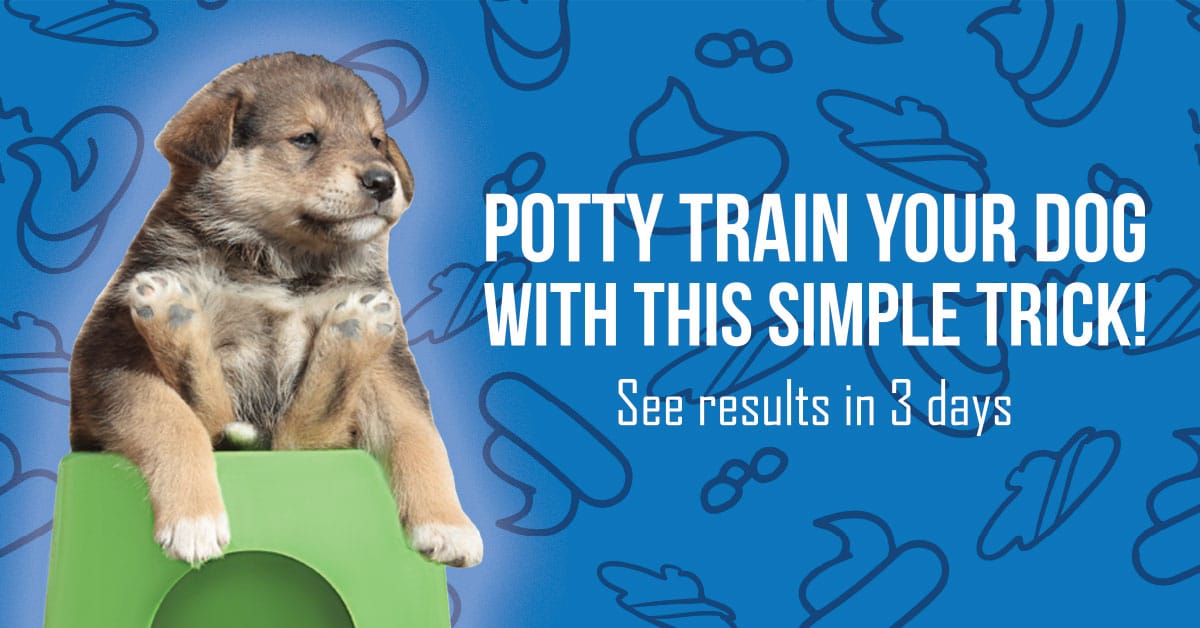Potty Training Basics
Most people don’t put up with a dog leaving a stinky mess; being greeted by a heavy smell and rug to be cleaned after a hard day at work is not ideal, right? Indeed, house soiling is the top reason why dogs lose their homes and end up in shelters. I have a few friends who love their dogs by heart but jokingly talking about their plans of getting rid of them because they are messy.
But, hey! Those little guys are really smart and can learn quickly. Dogs are actually much better at potty training compared to us. It takes at least 2 years for us to be potty trained and some of us have issues with it towards the end of our terms as well! Dogs have smaller bladders and bowels and don’t have complete control over the muscles involved. So don’t be harsh on them. You know what? They love you very much and they don’t want to make you upset in any way.
Potty training puppies at an early age, using the right method is one of the most important first steps you can take to build a long-lasting relationship with your puppy. It is best to get your pup trained as soon as possible for a loving relationship.
Set-up a Confinement Area
Many people who are new to dogs drawback from the idea of confining their pets in a crate but it is going to make the training much easier. Also, dogs are den animals they like to be in. We have seen over and over that confinement method (aka crate training method) showing results as early as 3 days!
You wanna make sure to pick a nice crate or dog exercise pen for your puppy. Consider your puppy is not going to stay this size forever! You might wanna pick a crate that suits best for your pups breed adult size. You may also use an exercise pen to create a confined area.
Oh also, make sure that you place the crate or the exercise pen away from carpets & rugs, if possible on a concrete or tile floor. There still be accidents during the training period and we don’t want to mess the carpet for two reasons. First and the obvious one, it’s dirty and disgusting. Second and the more important one, once dogs mark a spot, they continue using the same spot as a potty until you remove the smell.
Practice, Practice More
Setup a location for the crate or the exercise pen where there are good light and fresh air. Your pup will be spending lots of time in there until he or she is potty trained! Take out your puppy every 20-30 minutes when not sleeping on a leash and tell go potty. If your puppy pees or poops, you should praise with a treat along saying “good potty” and give lots of love. Give your pup 10 to 15 minutes to play off-leash while supervised if possible. If your pup does not pee or poop, take your pup back to his or her confinement area and try again 15 minutes later. Keep your pup in the confinement area while no one is attending.
Other than a 20-30 minute schedule take the pup out
- First thing in the morning
- Last thing at night
- After playing indoors
- After a nap
- After chew toy
- After eating
- After drinking
Idea is to get your pup accustomed to going potty outside.
Continue to frequently take your puppy outside. After 2-3 days start taking out every 40 to 60 minutes and after 6-7 days take out once every 2 hours until your pup won’t have any accidents in your house.
Only Positive Affirmation
An average 14-week old puppy should be able to hold his or her bladder for up to 6 hours. If your puppy has any accidents, it is never good to punish a dog or rub a dog’s nose in urine or feces. This will teach your dog to fear you, and he may hide when he has to go. It is not instinctive for dogs to relieve themselves outside, it is only natural for them to not go where they sleep. It’s best to tell them that’s bad and take them out right away. Always remember that patience and a good schedule is the key for potty training.
An 8-week old puppy is very different than a 5-month-old puppy. Some puppies have perfect manners after just a few days, some take months. 12 to 16 weeks of age is a good time to start potty training.
Puppies have tiny bladders, and water runs right through them (the same goes for the solid matter). Make sure that you are frequently giving your puppy the opportunity to do the right thing. Keeping a consistent schedule is the key to success. Also, be sure that you are controlling your dog’s diet. They should be eating dog food and dog food only! Examine your dog’s stool if your dog is consistently producing stools that are too dry, too wet diarrhea like, and stinky it may be the time to try a different diet. Also, be sure that your pup is getting lots of exercise. Walking, playing, running, and going outside which helps with healthy digestion.
